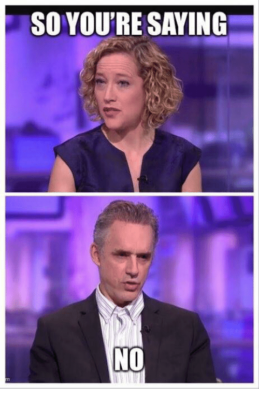- Joined
- Apr 15, 2007
- Messages
- 25,674
- Reaction score
- 8,693
But we're talking about people using specific terms to describe something. If somebody is applying a label to something, they should have a definition of it, yeah? Otherwise you can just assign anything you want if its even remotely related, or even not. Like I said, you cant just call a knife a spoon and say theyre the same thing because theyre both silverware. I cant just say "In this post Im responding to Loiosh" when Im responding to HenryFlower, and then say "Well, theyre both sherdog posters, so its basically the same thing."actually, that’s not how language works. since at least the 1800s, there hasn’t been a single influential thinker in the field of linguistics or semiotics whose ideas have functioned as the foundational building blocks of modern linguistic theory who would argue that a preoccupation with concrete, universal, and/or scientific/encyclopedic, definitions is “how language works.” vagueness and subjectivity will always be intrinsic to the meaning of words/language, & capturing a complete, objective meaning is a fool’s errand.
If you're arguing that definitions can change, sure. But if you're arguing that the labels and qualifiers people actually use to describe things arent rooted in objective qualities, thats not true. Otherwise definitions would have no purpose. Even arguing for subjective inference and context, the person using the term still has to have an actual definition of the term they're applying, otherwise theres no purpose to using it.


